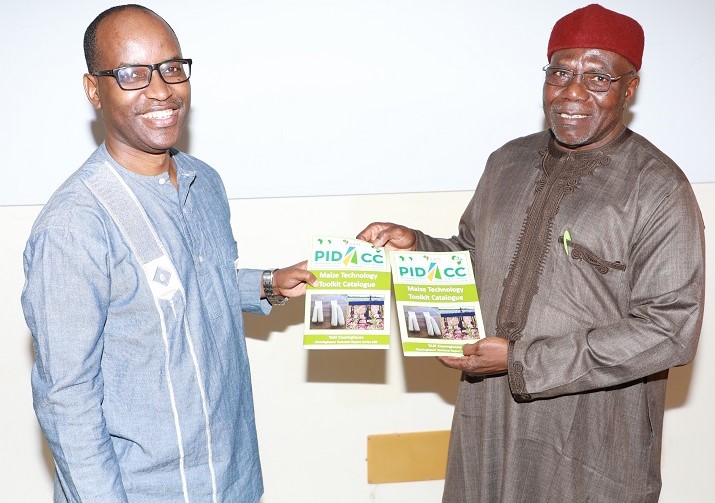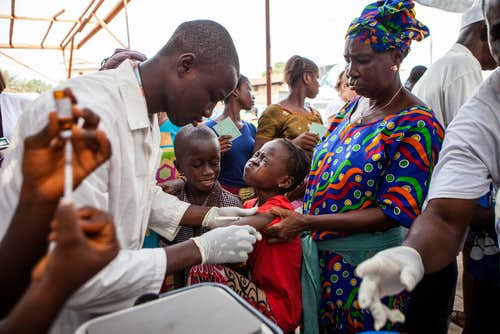
By Greg Odogwu
From September 24th to 26th, 2015, Nigeria shall be hosting Africa’s mining industry players in Abuja, with the theme “Harnessing the continent’s solid minerals for economic buoyancy through sustainable public-private sector synergy”.
This is actually a first of its kind event in Nigeria which will bring together thought leaders, mining executives, captains of industry and a wide range of companies and individuals involved in the entire value chain of mining in Nigeria and Africa.
There are two key reasons why such a conference strikes a note for the Nigeria of today. One, the country and its current leaders are in a race against time to balance the national fiscal equation. With crude oil now selling below 50$ – lower than the benchmark in the Federal budget – the economic atmosphere could actually be described with the popular imperative phrase “fire on the mountain!”
Two, mining practice in Nigeria has raised grave environmental concerns in recent times. A few years ago, hundreds of children died of lead poisoning in Zamfara State as a result of exposure to illegal artisanal mining practices in their communities. And just a few months ago, similar emergency erupted in Niger State where it was discovered that unscrupulous elements involved in artisanal mining dumped lead-laden earth near water bodies; and more than thirty children under five died after drinking the contaminated water.
Therefore, it is just as well that President Muhammadu Buhari’s government is giving the green light for proper exploitation of our abundant mineral resources; and also the necessary body language to inspire the entrenchment of best practices in the industry. The Africa Mining Conference 2015 has come on a good time. Perhaps, if the continental slant of the event is fully utilized, Nigeria might fast track its growth in this hitherto lacklustre sector and put its foot down as the giant of Africa it ought to be.
There are great potentials for mining in Africa, and some promising scope for Nigeria to quickly climb up the ladder. The continent hosts about 30% of the world’s total mineral reserves and even a higher share of deposits of diamonds, vanadium, manganese, platinum, cobalt and gold. Despite this significant amount of mineral resources however, Africa’s production represents only about 8% of the global mineral production.
International investors are seeking expansion to new markets especially in the developing world which presents new investment promises. The high cost of mining in developed countries has forced major global companies to seek investment opportunities in Africa, which offers relatively low costs of production. Such costs have led to an increased presence of multinational mining companies in Africa.
What is more, South Africa’s hold on the continental mining industry is gradually losing strength. According to an industry report, many of the 7,500 delegates at the recent annual mining conference in Cape Town felt that the investment wind was no longer blowing south to South Africa’s mining industry, but had changed and was now blowing north and west – seeking out opportunities in the rest of the continent. The reason is that many investors are nervous about continuous strikes at many of South Africa’s mines and the devastating effect they have on production.
There is great and urgent need to develop Nigeria’s mining sector both as an alternative economic roadmap and as an environmental sustainability strategy. This is because even if the country decides to continue giving a blind eye to the sector, the rogue miners of this world shall continue viewing Nigeria as a destination for easy riches via illegal mining.
Our ecosystem shall then suffer for it; while the country loses billions in lost revenue.
Truth is that the low contribution of the mining sector to Nigeria’s GDP has not always been the case as Nigeria once had a booming mining industry, but like the agricultural sector, the discovery of oil resulted in the gradual neglect of mining. Before the oil boom, Nigeria’s economy was largely sustained by agriculture and exploration of solid minerals.
Coal was one of the solid minerals mined on a large scale, it was in high demand owing to its use in electricity generation, powering of rail way networks and demand from regional and international markets. Other solid minerals such as tin, lead, zinc and columbite were also sources of foreign exchange for the country in the late 1940s. During this period Nigeria was the largest producer of columbite and the 6th largest producer of tin.
Notably, though the mining sector declined after the discovery of oil in 1956, the stagnation in the sector cannot only be attributed to the discovery of oil. Poor management of state-owned enterprises, corruption and an incoherent exploitation of resources had huge part to play in the decline of the sector. The civil war in the late 1960s also had an adverse effect on the mining sector as many of the expatriate mining experts working in Nigeria had to flee the country resulting in paucity of technical knowhow required to develop the sector.
The under-development of the mineral sector has resulted in Nigeria importing minerals that could be locally produced, thus missing out on the opportunity to increase local output, earn foreign exchange and create jobs. Over forty solid minerals have been discovered in commercial quantities in Nigeria but only a few of these minerals are currently being mined and those mined are mostly mined by artisans and small scale miners also known as informal miners who have their activities curtailed by poor funding, lack of equipment and poor training.
It will therefore serve organisers of AMC 2015 and the country well to look at some germane agenda which I think are pivotal to the resuscitation of mining in Nigeria. It is gladdening that two key government entities, Federal Ministries of Mines and Steel; and Foreign Affairs, are involved in the project because they will help to localise the outcome.
Firstly, African governments must increase budget to the mining sector in order to industrialise it. Most of the minerals produced in Africa are still exported raw without downstream processing, thereby reducing their potential value added. This could be likened to the export of crude oil without refining, and then subsequent importation of refined products for local consumption.
Secondly, governments should seek better regulatory vehicles for the industry. A situation whereby any Tom, Dick and Harry can go to local government authorities and obtain a mining licence has to stop. This encourages illegal mining and environmental degradation. Proper and robust regulatory process, complete with competent environmental impact assessment, is needed in Africa.
Thirdly, in some African countries, environmental problems and social issues caused by mining have been sources of protests and conflicts between mining companies and communities in mining areas. Mining has often been associated with deforestation, land degradation, air pollution, and disruption of the ecosystem. For example, the recent strikes and deaths in major platinum and gold fields in South Africa, and the surface land coal mining saga in Kogi State, Nigeria, have highlighted the social impacts and uncertainties surrounding Africa’s strategic mining sector.
To curb social and environmental impacts of mining, industry players and governments should strive for a more inclusive and transparent partnership by encouraging public participation in mining communities. Henceforth, the mining sector has to be viewed like the oil sector. Compliance and community relations issues have to be properly mainstreamed in baseline practices. This will raise capacity and create jobs for local communities, and also inspire confidence in foreign investors.









